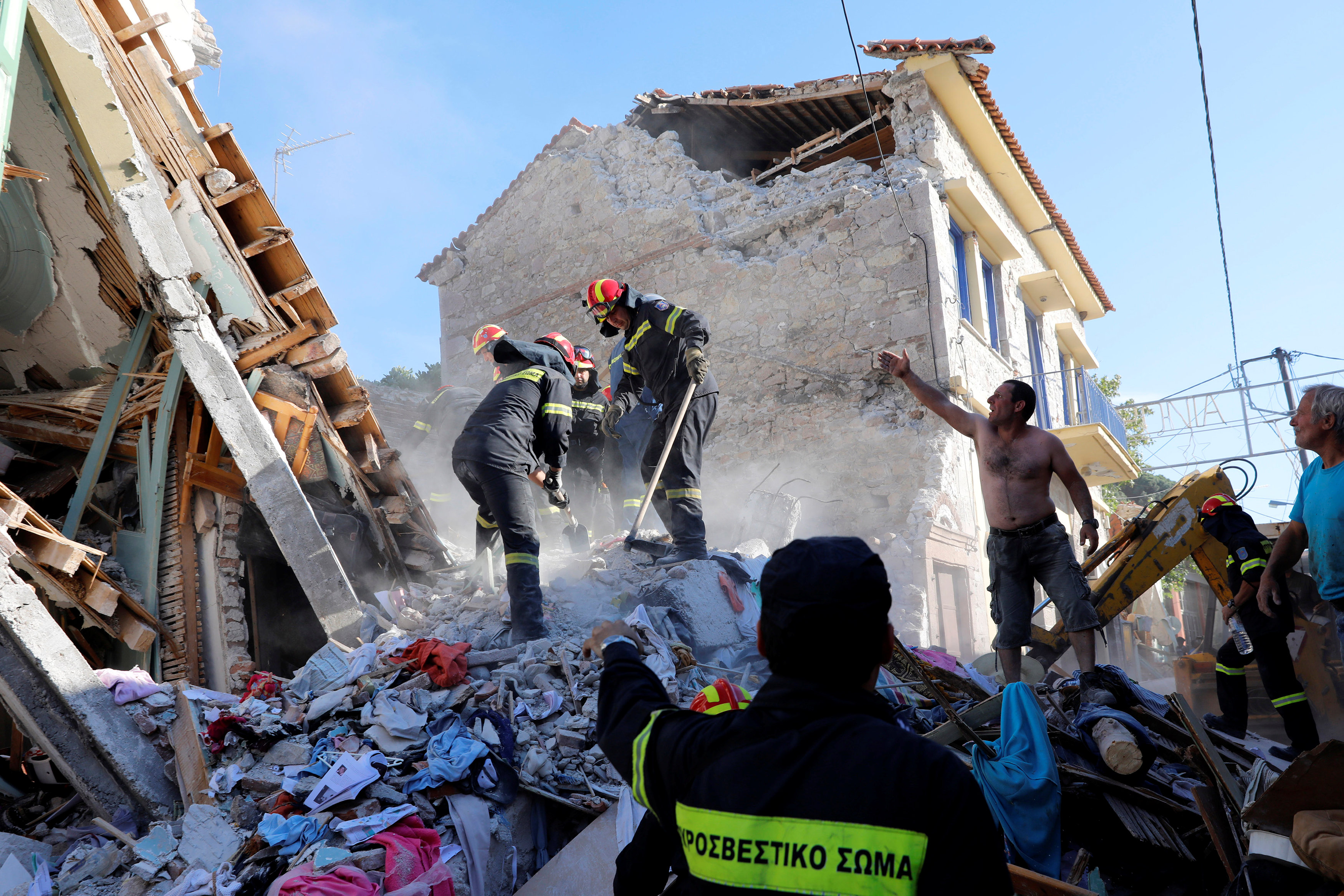
ATHENS (Reuters) – Over a dozen human rights groups and aid organizations wrote to Greek Prime Minister Alexis Tsipras on Monday urging him to end the “containment” of asylum seekers in island camps.
More than 13,000 people, mostly Syrians and Iraqis fleeing years of war, are living in five camps on Greek islands close to Turkey, government figures show. Four of those camps are holding two to three times as many people as they were designed for.
Those who arrive on Greek islands following a European deal with Turkey last year to stem the flow are forbidden from traveling to mainland until their asylum applications are processed, and those who do not qualify are deported.
Applications have piled up and rulings can take weeks. A recent sharp rise in arrivals has piled additional misery on overcrowded facilities.
The 19 signatories, which include Amnesty International, Human Rights Watch, the International Rescue Committee and Oxfam, said the islands of Lesbos, Samos, Kos, Chios and Leros had been “transformed into places of indefinite confinement.”
“We urge you to put an end to the ongoing ‘containment policy’ of trapping asylum seekers on the islands … and to immediately transfer asylum seekers to the mainland and meet their protection needs,” they wrote.
They described conditions as “abysmal” and said many asylum-seekers lacked access to adequate and timely procedures and protection. Some have been on the islands for 19 months.
“Reception conditions are deteriorating, and gaps in basic services, especially medical, are increasing,” they wrote.
Thousands of people, including young children, are crammed into tents with only a cloth separating one family from another, the groups said, and conditions were particularly harsh for pregnant women.
Nearly 23,000 people have arrived in Greece this year, a fraction compared to the nearly 1 million who arrived in 2015, but state-run camps are struggling to cope with the numbers.
As an emergency measure, the government has said it plans to move about 2,000 people from Samos and Lesbos to the mainland.
In recent weeks, Doctors Without Borders (MSF) its research showed a mental health emergency was unfolding in migrant camps on the islands, fueled by poor living conditions, neglect and violence.
The United Nations refugee agency called on Greece to speed up preparations at those camps, saying they were ill-prepared for winter.
(Reporting by Karolina Tagaris; Editing by Toby Chopra)

